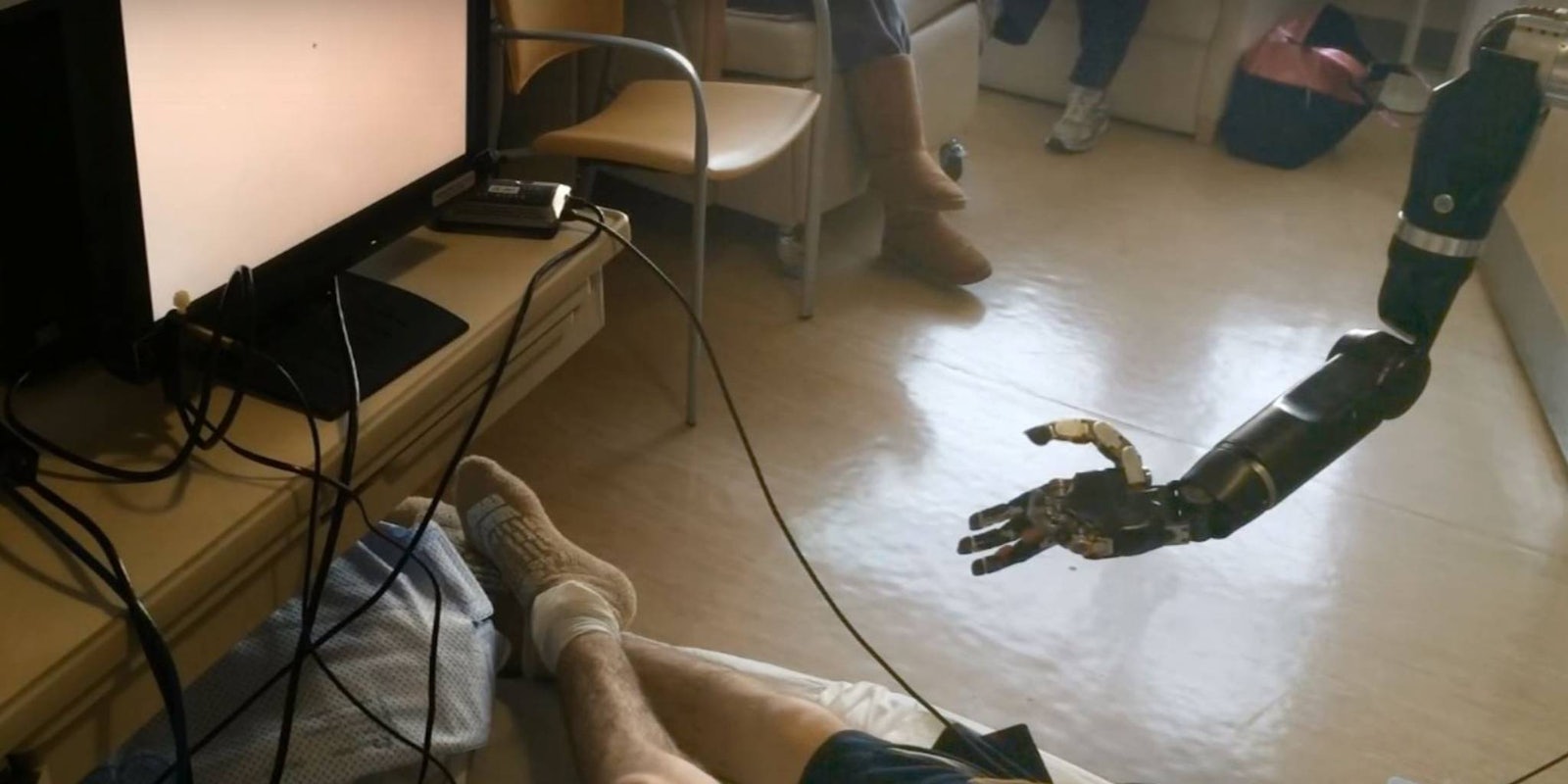Scientists at Johns Hopkins University have created a prosthetic system that allows for the individual movements of fingers to be controlled by the mind.
The scientists implanted a credit card-sized electrode array of 128 sensors on the brain of an epileptic patient to map the parts of the brain that control finger movement. Researchers used those results to program the array so that whatever finger the user is trying to move responds appropriately.
The results were largely successful.
The accuracy for detection of movements was an impressive 92 percent. At onset of those movements, the accuracy of moving the correct finger was 76 percent, and 88 percent of the pinky and ring finger movements worked together according to details published in the Journal of Neural Engineering.
“We believe this is the first time a person using a mind-controlled prosthesis has immediately performed individual digit movements without extensive training,” said senior author Nathan Crone in a press statement. “This technology goes beyond available prostheses, in which the artificial digits, or fingers, moved as a single unit to make a grabbing motion, like one used to grip a tennis ball.”
All of this is being controlled by a computer that gathers data, interprets it, and carries out the action to move each individual finger. The hope is to restore the hand function to those who have lost arms to injury or disease.
The most impressive thing about the device is that it can be mastered in under two hours without pre-training. And while it will take several more years before it is available to consumers, the device represents a strong start to putting control in the hands of something more permanent—our thoughts.
H/T Gizmodo | Screengrab via Johns Hopkins Medicine/Youtube
